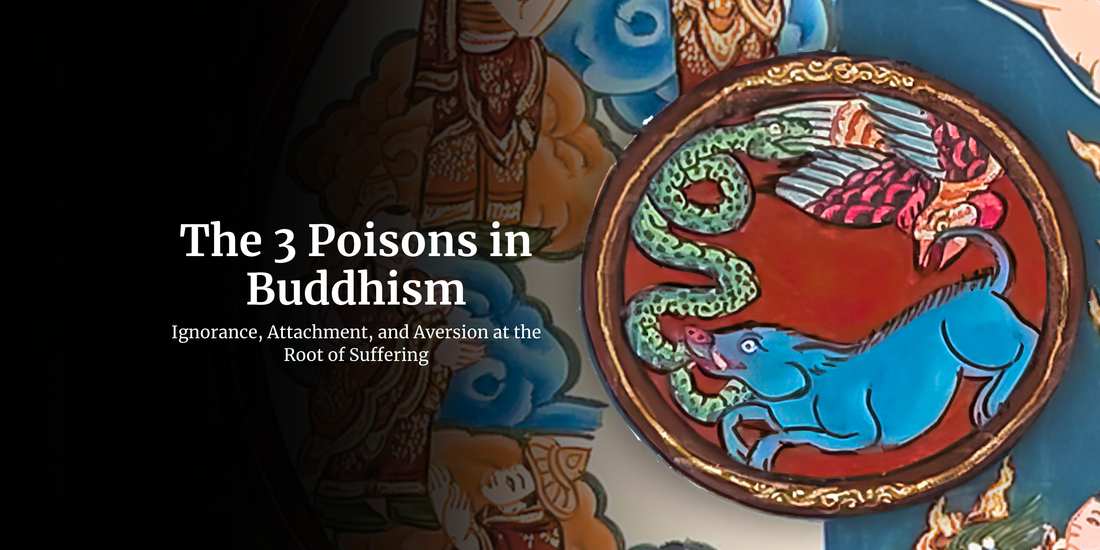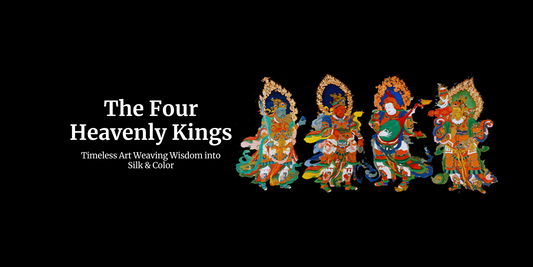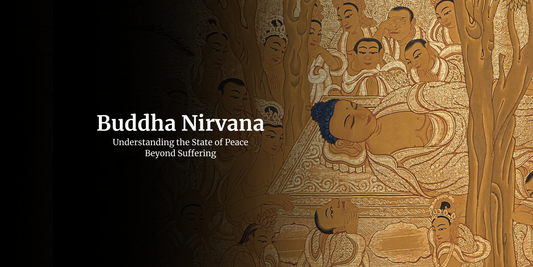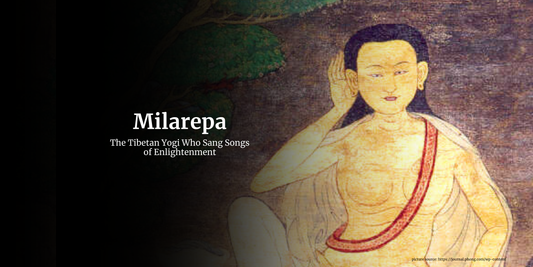- Buddhas Art of Healing
- Buddhism Blog | Teachings, Philosophy & Mindful Living
- The 3 Poisons in Buddhism: Ignorance, Greed and Hatred at the Root of Suffering

The 3 Poisons in Buddhism: Ignorance, Greed and Hatred at the Root of Suffering
Have you ever found yourself repeating an argument in your head that it is over? Or suddenly, did you feel a severe pain of jealousy?
In our daily life, we experience a tornado of feelings and reactions. Buddhism provides a deeply simple map to understand this internal chaos. There are three poisons in the heart of this map, also known as three wholesome roots.
So, what are those three poisons really, and how do they affect us every day? Let's look deeply.
3 Poisons in Buddhism
3 Poisons are not abstract philosophical thoughts; they are the basic sources of our ignorance, attachment, and disregard. Subtle yet powerful, they give shape to how we think, feel, and act, keeping us trapped in the endless cycle of samsara.
|
Poison |
Pali Name |
Meaning |
Associated Negative Emotion |
|
Greed |
Lobha |
Desire and attachment |
Craving and attachment |
|
Hatred |
Dvesha |
Anger and aversion |
Anger, Hatred, ill-will |
|
Ignorance |
Moha |
Delusion and misunderstanding |
Confusion, ignorance |
Think of suffering like a plant. The Three Poisons are the roots buried under the soil but feed everything above. What we see on the surface—our anger, stress, arguments, and unhealthy habits—are just the stems, leaves, and flowers coming out of those roots.
If we trim the leaves only, the plant will continue to grow back. Similarly, if we fix surface problems without addressing deep reasons, our pain will return. To find real freedom, we need to go to the root—the ignorance, attachment, and disregard—and they need to be transformed there.
Understanding the three poisons
Visually, the three poisons are depicted in the animal form:

- A rooster representing greed or desire.
- A snake representing hatred or aversion.
- A pig representing ignorance or aversion
Explore our Wheel of Life Thangka and witness how the 3 poisons—ignorance, desire, and hatred—are symbolized through the pig, rooster, and snake.
1. Greed (Lobha): The Craving That Never Ends
Greed, or attachment, is a compulsive desire for whatever we believe brings us happiness, security, or identity. "If only I had X, I would be happy."
-
How it feels: It's not just about money or things to own. It can be a craving for a certain experience, for a relationship, for a specific result, or even for a particular feeling forever.
-
Its subtle form: Sticking to a happy memory, "My Way," wanting a project to be successful, or when you do the simple task of reaching the other slices of cake when you're already full.
- The Result: Greed creates an endless cycle. The pleasure of getting what we want is always temporary. Soon, the craving returns, often for something new. This cycle is called Samsara—the wheel of suffering.
2. Hatred (Dosa): The Impulse to Push Away
Hatred, or aversion, is the opposite of greed. It is a desire to escape, reject, or destroy that we find unpleasant, threatening, or annoying. It's the energy of "I don't like it, and I want it to get away."
-
How it feels: It is in the form of irritation, annoyance, impatience, and boredom in the form of irritation from intense feelings such as anger and resentment.
-
Its subtle form: Avoiding a difficult conversation, being judgemental to someone silently, or even when you get disappointment.
- The Result: Hatred is a corrosive poison. It burns us from inside for a long time before affecting someone else. It creates internal conflict, destroys relationships, and closes our hearts to the world.
3. Ignorance (Moha): The Fog That Clouds Everything
Ignorance is the most fundamental poison. It is the misunderstanding of the true nature of reality. It’s the fog of delusion that prevents us from seeing things as they truly are.
-
How it feels: It’s not a lack of book knowledge. It's the deeply held but mistaken belief in a permanent, separate, and unchanging "self" or soul (a concept called anatta, or non-self). From this, we believe that things and experiences can provide lasting happiness.
-
Its subtle forms: Forgetfulness, confusion, denial, and a general lack of awareness about why we think and act the way we do. It’s the background noise of not quite knowing what’s going on.
- The Result: Ignorance is the soil in which greed and hatred increase. Because we misunderstand the reality, we yearn for the things that are inconsistent and remove the things that are indispensable (e.g., change, loss, and discomfort). It is the root of all sorrows.
How the Three Poisons Work Together
The Three Poisons rarely work alone. They feed off each other in a vicious cycle.
- Ignorance lays the groundwork. We are confused about what truly brings happiness.
- On the basis of this confusion, we crave something that we feel will have a happy effect (greed) or something that we think will make us unhappy (hatred).
- When we don't get what we yearn for, our opposition to the situation increases.
- Powerful combination of craving and avoiding deepens our ignorance, clouds our decision, and draws us deeply into the cycle.
You see that someone else gets a promotion. (Ignorance: Believing this event defines your value). You feel jealous and crave that recognition for yourself (greed). When you don't get it, you feel resentment toward your colleague or boss (hatred). This emotional storm prevents you from seeing the situation clearly, deepening your confusion and suffering (ignorance again).
Buddhist Remedy to Overcome Three Poisons
Understanding the Three Poisons is the first step. The real transformation happens when we actively cultivate their antidotes in our daily lives. Here’s how we can gently work with greed, hatred, and ignorance.
-
Transform greed with letting go: Practice generosity (dana) to weaken the spirit of a different "self" that craves. Cultivate contentment (santosha); find happiness and adequacy in whatever you have. Reflection on impermanence: realizing that all things are fleeting, this naturally loosens the tight grip of attachment.
-
Transform hatred with love: Practice cultivation of love and kindness; this practice directly replaces enmity with sympathy. Develop patience and compassion; see that other people act with their own grief, which helps to dissolve animosity. Mindful awareness is being a kind responder rather than an impulsive one.
- Transform ignorance with wisdom: To develop knowledge (prajna). Practice insight meditation (vipassana); it reveals a permanent, separate self. Understanding the interconnectedness dissolves the feeling of isolation and reduces the root of ignorance.
These are not abstract philosophical ideas; they are the fundamental sources of our suffering, anxiety, and dissatisfaction. By learning to recognize them, we take the first crucial step toward a more peaceful and liberated life.

1. Are the three poisons considered “sins” in Buddhism?
No. It is more like mental toxins or unhealthy habits of the mind. The focus isn’t on guilt or punishment but on understanding how these patterns cause our stress and learning to gently work with them.
2. Is all desire considered “greed”?
Not necessarily. It's the difference between a simple wish and a clinging craving. Wanting food when you're hungry is natural. Greed is the compulsive need for a specific, fancy meal to feel okay and the disappointment that follows if you don't get it. It's about attachment, not basic needs.
3. Is the goal to never feel these poisons again?
Realistically, no. The goal is to change your relationship with them. You learn to spot them quicker, catching the irritation before it becomes rage. Or the craving before it leads to action—it’s a practice of gentle awareness, not perfection.
Explore our collection of authentic Tibetan Thangkas from the art of Buddha's Art of Healing. Each of our Thangkas has been prepared to inspire peace, clarity, and spiritual connection.
Follow us on Facebook and Instagram to stay updated and informed about the different Buddhist teachings, festivals, special days, and more.



